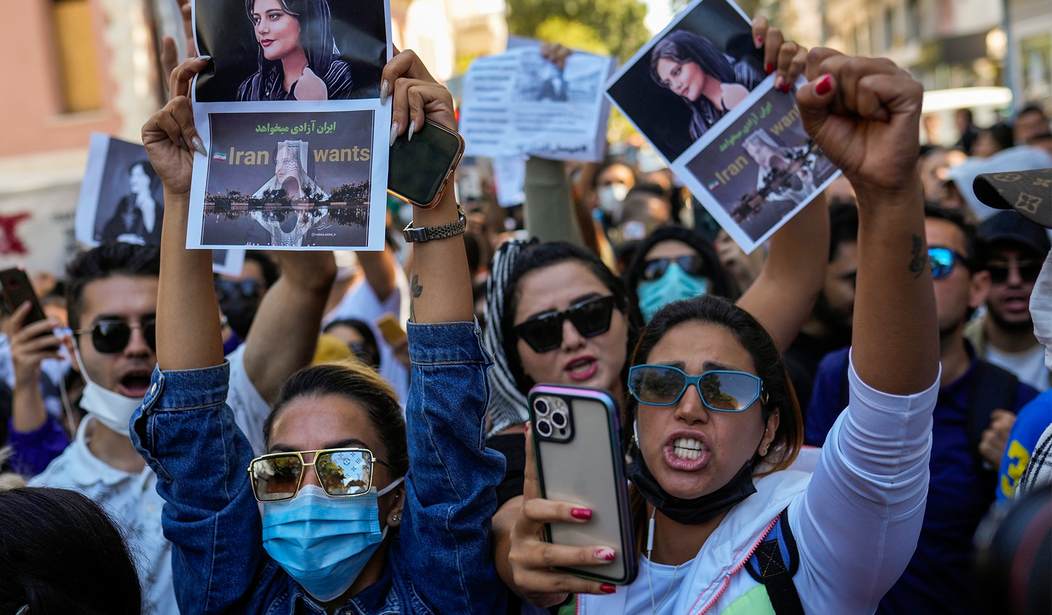The two-faced officials in Qatar who promised World Cup executives that there would be freedom of speech during the matches have been exposed as liars, as some fans are allowed to carry protest signs with a specific message and wear T-shirts with protest slogans while other signs are banned.
Specifically, “Free Palestine” has been a popular T-shirt at the World Cup. Authorities have had no problem with the thousands of fans streaming into the venues wearing the shirt or holding signs with that message.
Related: The Dynamic of the Iran Protests is Changing as Armed Conflict Ignites in Separatist Regions
Meanwhile, signs featuring a picture of Masha Amini, the young Iranian woman who died in the custody of the Morality Police, or the slogan “Women, Life, Freedom” are banned from the matches.
The contrast was laid bare this week outside the Al Thumama stadium. On Thursday, security ushered through hundreds of fans draped in flags, hats and scarves showing support for Palestine ahead of the Morocco v Canada match.
Two nights earlier, security at the same stadium confiscated items showing support for Iranian protesters, forcing fans to remove T-shirts and some flags ahead of Iran’s crunch match against the United States.
As crowds dissipated after Iran’s 1-0 defeat, Reuters journalists saw guards chase men in activist shirts through the stadium precinct, tackling one to the ground as he screamed the cry of Iran’s anti-government protesters: “Woman Life Freedom”.
The World Cup has its very own Human Rights department. Not surprisingly, it functions like any other Middle Eastern “human rights” organization — which is to say, it’s very selective in which human “rights” it deems worthy of protecting.
The department sent an email to fans complaining about the double standard which said that “Women.Life.Freedom” or the name or portrait of Mahsa Amini are allowed in stadiums, no problem, except “security authorities stepped in to deescalate tension and restore calm.” That settles that.
While fans see a double standard, analysts say the approach reflects the political priorities of Qatar, a conservative Muslim country with an authoritarian government that has long walked a diplomatic tightrope.
Its policies have included building good ties with Iran while hosting the region’s largest U.S. military base, and hosting the Palestinian Islamist group Hamas while previously having some trade relations with Israel and allowing Israelis to fly direct to Doha for the World Cup – a first.
For fans, inconsistent enforcement of rules had been “a real problem”, said Ronan Evain, executive director of Football Supporters of Europe. “What we see in the end is that FIFA has lost control of its own tournament.”
He said there had been “staggering” inconsistency over Iranian slogans, saying fans had worn T-shirts declaring support for the protests at some games while getting into trouble for wearing them at Iran’s matches.
On the other hand, symbols of support for the Palestinians have been widely seen. “I felt welcomed by the Qatari people and by all present here .… people greet us with ‘Palestine Palestine’,” said Palestinian fan Saeed Khalil.
The rainbow LGBTQ flag wasn’t much in evidence, either. All told, it’s just about what we’d expect from a conservative, anti-Israel, pro-Iranian Muslim state.










Join the conversation as a VIP Member